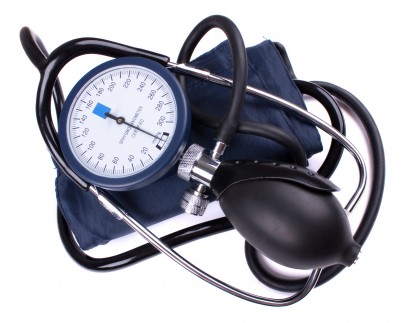The Dangers of Hypertension Include Increased Risk for Dementia and Cognitive Decline
 Many people are currently fighting high blood pressure, which is classified as a systolic blood pressure (the top number) above 139 mmHg or diastolic blood pressure (the bottom number) above 89 mmHg. Among the dangers of hypertension are heart disease, stroke, kidney failure, and eye problems. Research also shows that there is a link between hypertension and an increased risk for dementia and Alzheimer’s disease.
Many people are currently fighting high blood pressure, which is classified as a systolic blood pressure (the top number) above 139 mmHg or diastolic blood pressure (the bottom number) above 89 mmHg. Among the dangers of hypertension are heart disease, stroke, kidney failure, and eye problems. Research also shows that there is a link between hypertension and an increased risk for dementia and Alzheimer’s disease.
Cognitive impairment, the general term for a decline in cognitive performance, can range from mild declines in cognitive function to dementia. There are many types of dementia, including vascular dementia, Alzheimer’s disease, and other disease-specific dementias. There are a variety of different causes that contribute to the onset and development of cognitive decline and dementia. Heart disease in general is a risk factor, but what is less-known is that hypertension itself is considered an independent risk factor for dementia.[1]
The link between hypertension and dementia
Brain imaging studies have shown that high blood pressure is associated with abnormalities in the gray matter of the hippocampus area of the brain, along with atrophy of brain tissue. Reduced cerebral blood flow has also been shown to relate to cognitive impairment in hypertensive patients.[2]
Proper blood flow to the brain is essential for a healthy brain. When blood flow is impaired in some way, such as occurs with high blood pressure, the brain can be damaged directly and abnormalities that are already present can be magnified.[1] Decreased blood flow to the brain is clearly associated with an increased risk of Alzheimer’s disease,[1] and studies suggest that hypertension also leads to vascular changes in the brain that can cause neurologic alterations related to the onset of dementia.[1,2] Researchers think that blood pressure can affect both Alzheimer’s disease initiation along with progression.[3]
Blood pressure at middle age may predict cognitive performance later on
Several studies have shown that hypertension is especially risky at middle age and show a relationship between elevated blood pressure at middle age to a subsequent decrease in cognitive function in old age.[4]
Often, low blood pressure is seen in elderly dementia patients. This can be immediately dangerous, often causing brain damage. The researchers of a recent study in the journal Neurology found that patients with a history of hypertension in middle age were at a higher risk for brain damage when experiencing low blood pressure in later life than those who did not have a history of elevated blood pressure.[5]
The importance of controlling your blood pressure now
Clearly, high blood pressure can be very dangerous, and even having an elevated blood pressure at middle age can affect cognitive performance later on. Some authors even conclude that “early prevention and treatment [of high blood pressure] could potentially mitigate the onset of dementia.”[1] Taking care of yourself now might help you to prevent cognitive decline and even Alzheimer’s disease when you reach old age.
Lowering your blood pressure to reduce your risk of dementia
There are many natural strategies for lowering your blood pressure. Decreasing salt, sugar, and alcohol, and increasing foods rich in potassium (such as bananas, avocados, and beans) and polyphenols (such as berries, pomegranates, and dark chocolate) will help. Exercise regularly, and try supplements like CoQ10, magnesium, and vitamin D. You will find a comprehensive guide on lowering blood pressure in “Lower Blood Pressure Naturally: How to Achieve Ideal Blood Pressure Without Drugs” in the NHA Library.
[1] Clin Epidemiol. 2013 Apr 26;5:135-45.
[2] J Alzheimers Dis. 2010;20(3):749-63.
[3] Epidemiology. 2011 Sep;22(5):646-59.


 News Briefs February 2024
News Briefs February 2024  Savor the Sweet Potato
Savor the Sweet Potato  Living with Dementia Means Having a Greater Fall Risk
Living with Dementia Means Having a Greater Fall Risk 